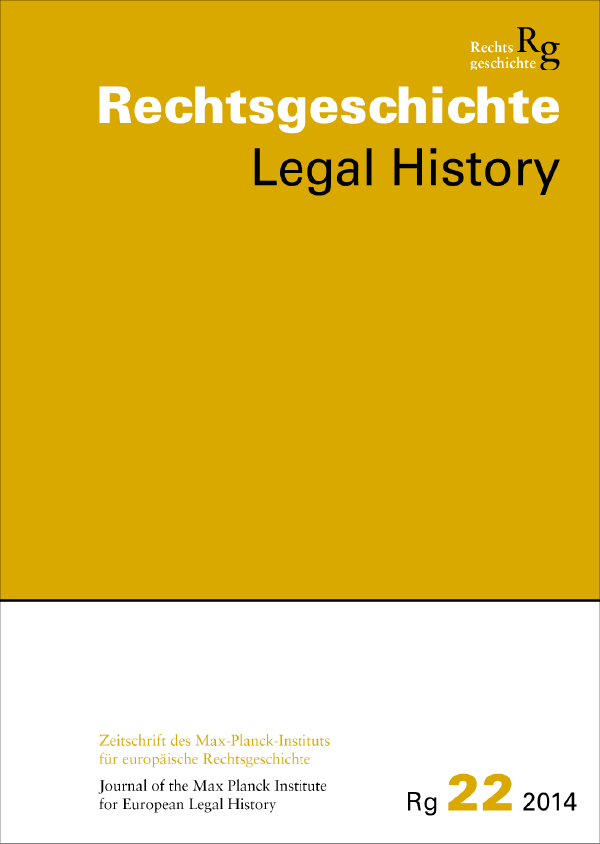Does Europe Include Japan? European Normativity in Japanese Attitudes towards International Law, 1854–1945
DOI:
https://doi.org/10.12946/rg22/228-243Abstract
European normativity has been an epistemological problem for Japan throughout modernity (1868–1945). This essay discusses this problem in the case of international law by tracing its reception and application from the beginning, the opening-up of Japan in 1854, until the final demise of its imperialist project in 1945. During this period, Japan was the only non-Western great power in the hitherto all-European concert of powers. International law and the critique of European normativity played a central role in Japan’s ascent to power and confrontation with the West. In the first phase of reception between 1954 and 1905, Japanese attitudes towards international law were marked by an exceptional commitment to and acquiescence with the European standard, in line with Japan’s ambition to »leave Asia«. However, due to its strategic purposes, European normativity was more a means of political expediency than a matter of intrinsic conviction. Moreover, after the initial phase of receiving and practicing the principles of international law with considerable success, many Japanese began to feel a certain estrangement and inner reservation to European standards. Not until 1905, was Japan in a position to gradually challenge Europe. Thus, Japan’s interwar period (1905–1931) was an uneasy combination of outward compliance and inner reservation, a tension that Japan eventually resolved by withdrawing from Europe and trying to build its own autonomous sphere in East Asia after 1931. However, the example of Japanese international lawyers shows that in order to save international law from its ultranationalist critics and enemies, European normativity still remained the central cultural reference, albeit now in its revisionist variant (especially Soviet and Nazi German political thought) and subject to a strategic re-interpretation. Thus, from the perspective of Japanese international lawyers, despite the Pan-Asianist pretensesof Japan’s official rhetoric during the war, Japan never actually left Europe.
Downloads
Published
How to Cite
Issue
Section
License
Copyright (c) 2014 Author

This work is licensed under a Creative Commons Attribution-NonCommercial-NoDerivatives 3.0 Unported License.





